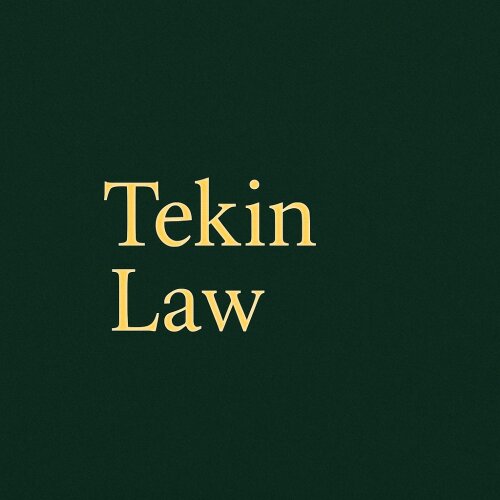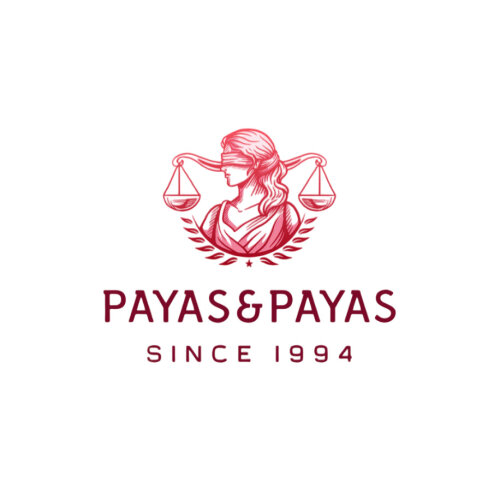Best Corporate & Commercial Lawyers in Turkey
Share your needs with us, get contacted by law firms.
Free. Takes 2 min.
Or refine your search by selecting a city:
List of the best lawyers in Turkey
Legal guides written by Tekin Law Firm:
- Arbitration in Turkey
Turkey Corporate & Commercial Legal Articles
Browse our 1 legal article about Corporate & Commercial in Turkey written by expert lawyers.
- Turkey KVKK Compliance: A Guide for Global Businesses
- Mandatory Registration: Foreign data controllers targeting the Turkish market or monitoring Turkish residents must register with the VERBIS system before processing data. 2024 Reform: Recent amendments to the KVKK have aligned Turkish cross-border data transfer rules more closely with the EU's GDPR, introducing Standard Contractual Clauses (SCCs). Criminal Liability: Unlike... Read more →
About Corporate & Commercial Law in Turkey
Corporate & Commercial law in Turkey forms the backbone of the country's dynamic business environment. This field encompasses the set of rules, regulations, and practices that govern how companies are formed, operated, merged, acquired, or dissolved in Turkey. From start-ups to multinational corporations, these laws provide guidance on everything from company incorporation to commercial contracts, shareholder rights, compliance obligations, and dispute resolution. Turkish Corporate & Commercial law is based on the Turkish Commercial Code and other related statutes, aiming to ensure clear rules, transparency, and fairness in business activities.
Why You May Need a Lawyer
Whether you are an entrepreneur launching a startup, a foreign investor, a shareholder, or a manager of an established company, there are many circumstances where expert legal advice is crucial in Turkey. Some of the most common situations include:
- Establishing a new company or branch in Turkey
- Drafting, negotiating, or reviewing commercial contracts
- Mergers, acquisitions, and due diligence
- Compliance with local and international regulations
- Resolving commercial disputes or navigating litigation
- Drafting bylaws or making amendments to corporate governance documents
- Dealing with bankruptcy, liquidation, or restructuring
- Handling employment, tax, or intellectual property matters specific to commercial operations
A qualified Corporate & Commercial lawyer in Turkey can help protect your interests, ensure you comply with all legal requirements, mitigate risks, and provide representation if disputes arise.
Local Laws Overview
Key aspects of Turkish Corporate & Commercial laws include:
- The Turkish Commercial Code - This is the primary statute that governs company formation, management, shareholder rights, mergers, and liquidation procedures in Turkey. It ensures compliance with international standards and EU harmonization.
- Company types - The most common structures are Joint Stock Company (Anonim Şirket - AŞ) and Limited Liability Company (Limited Şirket - Ltd. Şti.). Each has distinct requirements regarding shareholders, capital, and administration.
- Corporate governance - Turkish law sets clear regulations for management bodies, general assemblies, and the roles and liability of directors.
- Commercial contracts - All commercial agreements must comply with mandatory provisions and can be subject to registration and notarization in some cases.
- Foreign investment - Turkey provides a favorable environment for foreign investors, with equal treatment and relatively few restrictions on business ownership.
- Dispute resolution - Commercial disputes may be resolved through Turkish courts or, if agreed, through domestic or international arbitration.
- Compliance - Companies are required to adhere to tax regulations, data protection rules, labor laws, and other specific sectoral legislation.
Frequently Asked Questions
What are the most common types of companies I can establish in Turkey?
The Joint Stock Company (AŞ) and the Limited Liability Company (Ltd. Şti.) are the most popular forms. Each has its own setup process, minimum capital requirements, and management structure.
Can foreigners own companies in Turkey?
Yes, Turkish law allows foreign individuals and entities to own 100 percent of Turkish companies, subject to compliance with certain licensing or regulatory requirements in some sectors.
How long does it take to establish a new company in Turkey?
Establishing a company can often be completed within one week if all documentation is in order and regulatory requirements are met.
What documents are required for company incorporation?
Necessary documents generally include articles of association, notarized signature declarations, proof of address, and official identification of shareholders and directors.
Are there any ongoing compliance obligations for companies?
Yes, companies must maintain proper accounting records, hold annual general meetings, submit tax filings, and comply with labor, environmental, and sector-specific laws.
What taxes apply to companies in Turkey?
The main taxes include corporate income tax, value added tax (VAT), and social security contributions for employees. Rates and obligations vary depending on the business activity.
How are disputes between shareholders or partners resolved?
Shareholders can resolve disputes internally through meetings or mediation. If unresolved, disputes may be escalated to Turkish courts or resolved via arbitration, depending on the shareholders’ agreement.
Are there restrictions on transferring shares in a company?
Share transfers are permitted, but procedures may vary depending on company type. Transfers in Joint Stock Companies are generally free, whereas Limited Liability Companies may require approval from other shareholders or the general assembly.
What are the disclosure requirements for Turkish companies?
Companies are required to disclose certain information such as annual reports, shareholder and director details, and changes in shareholding to the Trade Registry.
Can commercial contracts be executed in foreign languages?
Contracts can be drafted in any language, but Turkish translations may be needed for registration or enforcement before Turkish authorities.
Additional Resources
For further guidance and support, consider consulting these key resources and organizations:
- Ministry of Trade (Ticaret Bakanlığı) - Oversees commercial affairs, company registration, and trade regulations
- Union of Chambers and Commodity Exchanges of Turkey (TOBB) - Provides support to businesses and publishes resources on company law
- Istanbul Chamber of Commerce (İstanbul Ticaret Odası) - Offers information and guidance for domestic and international businesses
- Turkish Trade Registry Gazette - Official source for public company records and legal announcements
- Independent business associations and law societies - Many provide guides and lists of qualified corporate lawyers
Next Steps
If you need legal assistance in the field of Corporate & Commercial law in Turkey, consider the following steps:
- Assess your needs - Define the scope of your business, the legal issue, or the transaction involved
- Gather relevant documents - Prepare any corporate records, contracts, or correspondence relating to your case
- Consult with a qualified Corporate & Commercial lawyer - Seek experts familiar with Turkish laws and international practices if required
- Request an initial consultation - Discuss your objectives, timeline, potential risks, and legal fees
- Act promptly - Delays can lead to increased risk or missed opportunities in the business context
Professional legal counsel can help you navigate complex regulations, structure your business optimally, and protect your interests both in and out of court. Taking early advice often prevents future legal problems and ensures that you are fully compliant with Turkish laws.
Lawzana helps you find the best lawyers and law firms in Turkey through a curated and pre-screened list of qualified legal professionals. Our platform offers rankings and detailed profiles of attorneys and law firms, allowing you to compare based on practice areas, including Corporate & Commercial, experience, and client feedback.
Each profile includes a description of the firm's areas of practice, client reviews, team members and partners, year of establishment, spoken languages, office locations, contact information, social media presence, and any published articles or resources. Most firms on our platform speak English and are experienced in both local and international legal matters.
Get a quote from top-rated law firms in Turkey — quickly, securely, and without unnecessary hassle.
Disclaimer:
The information provided on this page is for general informational purposes only and does not constitute legal advice. While we strive to ensure the accuracy and relevance of the content, legal information may change over time, and interpretations of the law can vary. You should always consult with a qualified legal professional for advice specific to your situation.
We disclaim all liability for actions taken or not taken based on the content of this page. If you believe any information is incorrect or outdated, please contact us, and we will review and update it where appropriate.
Browse corporate & commercial law firms by service in Turkey
Turkey Attorneys in related practice areas.
Browse corporate & commercial law firms by city in Turkey
Refine your search by selecting a city.

















